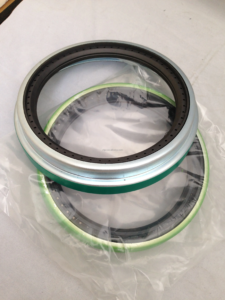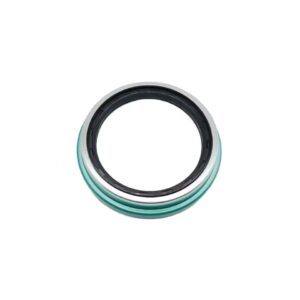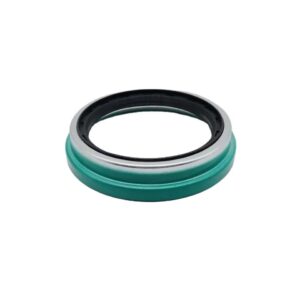Table of Contents
ToggleWhere Are CR Seals Made?
Exploring SKF’s Global Manufacturing Network



Introduction
CR Seals, a flagship product line under the SKF Group, are renowned for their reliability in industrial and automotive sealing applications. Originally developed by Chicago Rawhide in 1878, the brand became part of SKF in 1990, expanding its production capabilities worldwide. Today, CR Seals are manufactured across a network of strategically located facilities in Europe, Asia, North America, and South America. This guide delves into the history, key production hubs, and quality standards that define CR Seals’ global footprint.
1. Brand Origin & Acquisition
1.1 Chicago Rawhide: The Foundation
- Founded in 1878: Chicago Rawhide (CR) began as a U.S.-based company headquartered in Elgin, Illinois, specializing in leather and rubber seals for early industrial machinery.
- Pioneering Innovations: By the mid-20th century, CR transitioned to advanced elastomeric seals, becoming a leader in automotive and industrial sealing solutions.
1.2 SKF Acquisition (1990)
- Strategic Integration: SKF acquired Chicago Rawhide in 1990, rebranding it as SKF Sealing Solutions – Chicago Rawhide. This merger combined CR’s legacy expertise with SKF’s global engineering resources.
- Global Expansion: Post-acquisition, SKF expanded CR’s manufacturing footprint, establishing facilities in Europe, Asia, and Latin America to serve regional markets.
2. Global Manufacturing Network
2.1 Overview
SKF operates 140+ manufacturing sites globally, with 28 facilities in the U.S. alone. CR Seals are produced in dedicated plants optimized for regional demands:
- Industrial Seals: High-precision seals for machinery and heavy equipment.
- Automotive Seals: Cost-effective solutions for OEMs and aftermarkets.
2.2 Key Production Regions
2.2.1 China
- Anhui CR Seals Co., Ltd. (Wuhu):
- Established in 1996 as a joint venture between SKF (60%) and Anhui Yasimo (40%).
- Relocated to Wuhu Economic Development Zone, featuring 25,000 m² of land and 9,000 m² of production space.
- Utilizes German PTFE and injection-molding technologies to serve domestic and export markets.
2.2.2 United States
- Utah (Salt Lake City):
- Centralized hub for industrial seals after the closure of the Seneca, Kansas plant in 2017.
- Focuses on high-volume production for North American industries.
- Illinois (Elgin):
- Original Chicago Rawhide headquarters, now a R&D and limited production site for automotive seals.
- Partial production shifted to Mexico and other U.S. plants for cost efficiency.
2.2.3 Europe
- Germany (Goetze Elastomere):
- Acquired in 1994, specializing in precision seals for automotive and heavy machinery.
- Austria (Economos GmbH):
- Joined SKF in 2006, producing hydraulic and fluid-handling seals for European markets.
2.2.4 India
- 1995–2005 Expansion:
- Multiple facilities launched in Bangalore and Pune to support India’s growing automotive sector.
- Serves local and Southeast Asian markets with cost-competitive solutions.
2.2.5 Brazil
- Regional Hub: Supplies seals tailored to South America’s mining, agriculture, and transportation industries.
3. Quality Assurance & Certifications
3.1 Global Standards
- ISO 9001 & IATF 16949: All SKF plants adhere to stringent quality management systems.
- Centralized R&D: Critical designs originate from SKF’s R&D centers in Sweden and the Netherlands, ensuring uniformity across global production.
3.2 Localized Customization
- Regional Adaptations:
- Asia: High-temperature seals for manufacturing industries.
- Coastal Regions: Corrosion-resistant variants for marine applications.
- South America: Robust seals for mining and agriculture.
4. Future Trends & Localization
4.1 Automation & Advanced Materials
- SKF continues to invest in automated production lines and advanced materials (e.g., hybrid PTFE-elastomer compounds) to enhance seal durability.
4.2 Sustainability Initiatives
- Eco-Friendly Practices: Reduced waste and energy-efficient manufacturing processes align with global environmental standards.
4.3 Market Proximity Strategy
- Decentralized Production: Local plants minimize logistics costs and accelerate delivery times while maintaining SKF’s global quality benchmarks.
5. Identifying the Origin of CR Seals
- Packaging Codes:
- “Made in Sweden”: Premium industrial-grade seals.
- “Made in China”: High-volume automotive OEM seals.
- Documentation: Consult SKF catalogs or regional distributors for part-specific details.
Conclusion
From its roots in 19th-century Chicago to today’s global network spanning Wuhu, Salt Lake City, Germany, and India, CR Seals exemplify SKF’s commitment to quality and innovation. Each facility, while regionally tailored, operates under SKF’s uncompromising standards, ensuring that CR Seals deliver consistent performance worldwide.



Leave A Comment